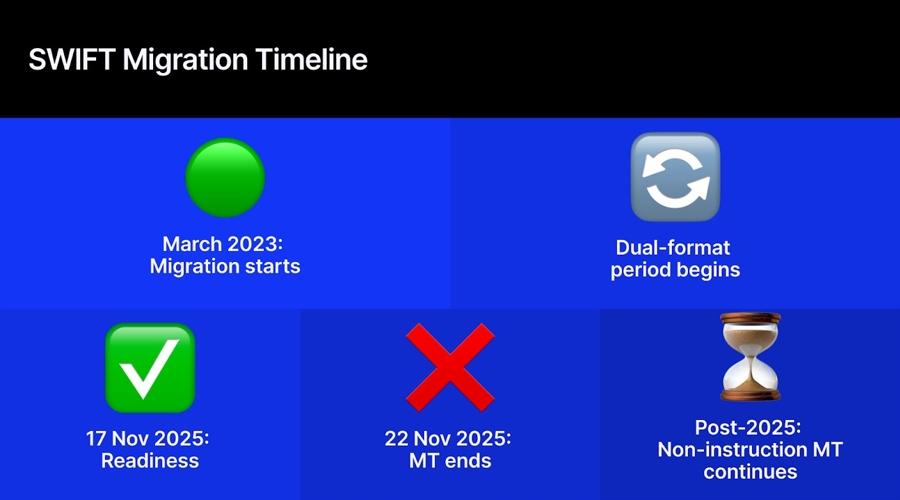When you’re starting a new business, you need to hang onto every cent possible. The idea of missing profits or even losing profit opportunities can feel like a punch to the gut, especially after investing so much time, energy, and funding into your idea.
Fortunately, there are things you can do to avoid missing profit and growth opportunities. Some basic steps can mean the difference between losing out on profits and locking them in.
By utilizing technology, taking care of your employees, and getting to the bottom of why you might be missing out on those opportunities, you’ll start to see the financial growth you need to succeed.
Still not sure how to get started? Let’s cover a few strategies you should put into place right away to avoid missing profits.
Sign up for 12 new, free courses on topics from SBA loans to influencer marketing. Verizon Small Business Digital Ready.
Use Tech to Your Advantage
Technology can be used in a variety of ways to avoid missing profits. First, you can use it to create a root cause analysis. What’s causing your business to miss out on essential profits? Tech can be used to collect real-time data.
By utilizing AI and machine learning, you’ll quickly be able to see where your business gaps are, and which areas are being “missed,” so you can devote more attention there. Making data as accessible as possible will help you make more informed decisions in everything from marketing to supply chain issues.
In addition to data analysis, technology can be used to increase both efficiency and accuracy in the revenue cycle. You can leverage automation for repetitive tasks. Not only does it eliminate human error, but it will speed up certain processes and free up employees to take on more challenging roles.
When it comes to speeding up the billing cycle, technology can offer a centralized system that allows you to reduce administrative effort and speed up the process. You are more likely to get paid from your vendors/customers/clients on time, without having to constantly chase them with invoices.
Maximize Employee Productivity
The equation is simple: The more productive your employees are, the greater your profits will be. But, how can you make sure you’re maximizing employee productivity while fostering a healthy, positive workplace environment?
Start by focusing on your employees first. Starting a business is a lot of work and can create consistent stress for everyone involved. There’s a direct correlation between work and mental health. If your team is stressed or burnt out, you could start to see issues like:
- Reduced cognitive performance
- Reduced productivity
- Lack of motivation
- Reduced engagement
Take the time to advocate for mental health in the workplace and make it a priority within your business. Encourage frequent breaks and a healthy work-life balance for all employees. Check in with your team regularly, and offer mental health resources they can turn to if they’re ever feeling overwhelmed.
For Anyone Wanting to Start a Business, There Is a Season
Additionally, show your employees that you see their value and worth, and encourage an environment that fosters growth. Upskilling your employees is a great way to improve productivity and motivation in the workplace. Not only will it improve the quality of work, but more people within your team will be ready to take on new responsibilities and challenges.
A staff that sticks with you and grows with your business for years will always have your best interest in mind and will do whatever it takes to capitalize on profit opportunities.
Upgrade Your Marketing Strategy
Every business owner understands the importance of effective marketing, but are you using the right strategy for your company or industry? Start with the basics by looking at your website. Audit your website by asking:
- Is it accessible to everyone?
- Is your content relevant?
- What are your analytics telling you?
You should also be focusing on your social media engagement. Showing off the human side of your business is a great way to connect with your audience and build relationships that will turn people into loyal customers.
Finally, make sure your marketing strategy is actually speaking to your audience. If you aren’t transparent or if your message seems disingenuous, people are likely to turn away, and you’ll miss out on important sales.
Provide Stellar Customer Service
Your customers are the bread and butter of your business. The last thing you want is to miss out on a sale because of lackluster customer service. Try to look at your current customer service strategy from the perspective of your audience. Survey your customers for feedback, and be willing to implement it right away.
Additionally, provide consistent training to your team and offer them examples of what they should be doing — and what they could do better.
10 Best Practices Successful Companies and Marketers Follow
In addition to the “human” side of your customer service strategy, do what you can to improve customer loyalty through things like:
- Reward programs
- Check-in points
- Automated emails
- Fresh content
The more engagement you can have with your customers and audience, the more likely they are to stay loyal to your business so you aren’t missing out on important sales.
Assess Your Risks
Risk management should be a top priority for any business. Again, you can use technology to collect important data that will quickly let you know where your weak spots are. It’s not always easy for a company to admit those weaknesses, but you have to be willing to look at them and recognize your risks if you want to fight back against them. Some of the most common types of business risks include physical, location, strategic, or tech.
One of the best ways to do that is by keeping things organized.
Human error is, perhaps, one of the greatest risks you’ll face when it comes to careless mistakes and profit loss. Getting organized with things like document templates for paperwork, cloud-based services, and billing software will reduce that risk and streamline your workflow. You might also consider outsourcing some of your tasks if there are members of your team who are feeling overwhelmed or who might not have the expertise for specific roles.
As you can see, there are plenty of ways to avoid missing profits. If you’re willing to take a look at your start-up and find the holes, you can easily “patch” them and go above and beyond. By using these strategies, you won’t just avoid missing out on profit opportunities—you’ll start to see greater success from the inside out.







































